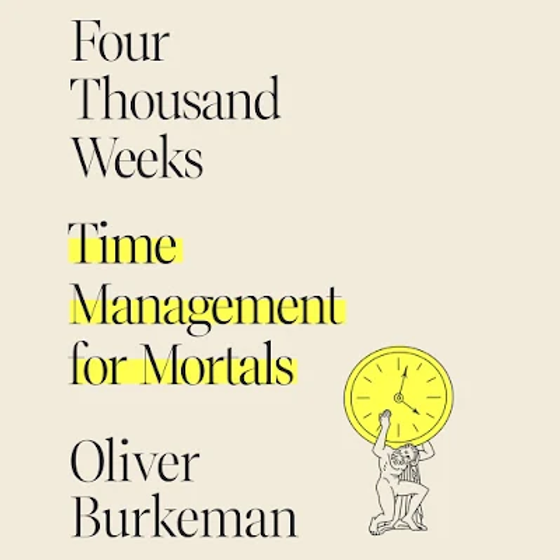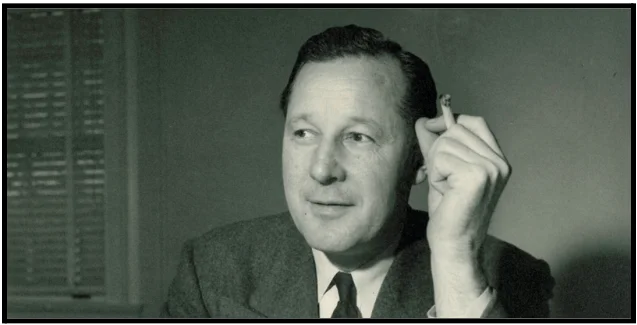Before reading this book, how many weeks did you think the average person lived?
I love this quote from Marie-Louise von Franz (page 218):
There is a strange attitude and feeling that one is not yet in real life…there is always the fantasy that sometime in the future the real thing will come about…there is a terrific fear of…being the unique human one is.
We often fill our days focused on getting stuff in order. Once we’ve got all our shit together, then we can live well. Except “there’s no dress rehearsal.” As Burkeman emphasizes: This is it. All of life is the firehose of stuff coming at us. We never reach the magic moment when everything is in its proper place.
Why not find ways to enjoy each of our days? “How we spend our days is, of course, how we spend our lives.” ~ Annie Dillard. Why not fill the journey with meaning and wonder, instead of stress and struggle? How can we each better do this?
Has Burkeman made you see things differently? In little ways and big? Consider:
- Carving out space in the day to embrace wonder.
- Morning snuggles. A waste of time? Or the best way to spend time?
- Doing leisure activities for their own pleasure. No need to try getting better.
- Reading just for fun. Making time for a good fiction book.
- Seeing time management holistically, with the big picture in mind.
“You teach best what you most need to learn.” (page 33) What do you teach best?
Burkeman argues FOMO is bad, JOMO is good. (Fear of Missing Out / Joy of Missing Out.) What’s one way you can switch from FOMO to JOMO?
“Practice Doing Nothing…nothing is harder than doing nothing.” Set the timer for five minutes. Just sit there. No tasks. Don’t focus on breath, thoughts, or anything. If you criticize yourself for failing, don’t do that either. (page 245) Did you try this exercise? Will you consider it and report back?
Think about a moment that time dissolved for you, as it did for Carl Jung on page 22. What were your circumstances? How can you build moments like this into your week?
Burkeman argues that regardless of how good we get at “clearing the decks” they’ll just keep filling up. And that it applies to busy work as well as skills to improve and things to do. He says we are all “guaranteed to miss out on almost every experience the world has to offer.” And that acknowledging this truth is liberating.
Every choice we make closes doors to other possibilities. We make countless choices every day, closing countless doors. Heideggar says this is the central challenge of existence: To fully live our lives, we must embrace the reality that all the experiences we end up having will be an infinitesimal sliver of potential experiences.
How do you fail to acknowledge this truth?
How can you better embrace it?
Franz Kafka spent his life refusing to commit to his girlfriend. And so he lost out on a lifetime of love. In what way have you failed to commit to something of value?
There will be a Last Time for everything. Some are big: the Last Time you hug a loved one. The Last Time you pick up your child. Some are small. Every day is filled with several Last Times. What’s a memorable Last Time that you had? What’s a Last Time that is coming soon?
Burkeman describes a guy named Geoff who’s pissed off being stuck in traffic. Then he thought about his friend Dave who died. “What would Dave have given to be caught in this traffic jam?” A feeling of gratitude came over him. Instead of focusing on what he was doing, Geoff focused on the fact that he was doing something at all.
Sam Harris has a classic gratitude experiment. Next time you’re annoyed, he says, imagine you died yesterday. All the people you love, you can never see them again. And now, miraculously, you’ve come back to life. The annoying feeling can be transformed into gratitude. As Ben-Shahar points out in Happier, with little mental exercises like this we can learn to quickly make ourselves feel any positive emotion.
Have you tried the Geoff or Sam Harris experiments? Will you commit to trying one the next time you’re annoyed?
A key principle in finance is Pay Yourself First. How can you better apply this when it comes to your time? How about your attention?
I divide my life up like this:
- Health: mind, body
- Love: partner, tribe, community
- Work: career, projects, money
- Play: leisure, adventure
How do you divide up your life? What deserves the most time and attention? What is one thing you can stop doing to make more time for the stuff you value most?
Let’s say a few years ago Isabel bought a bunch of crypto currency and today it goes parabolic. She’s a billionaire. She gives us all $10 million during this conversation. How does that change how you focus your time and attention? Your life?
“You must settle in life. You don’t have a choice.” What do you think about this?
What is your Watermelon Problem? What stupid stuff do you find hijacking your time and attention?
Burkeman argues the way to find peace isn’t to seek happiness, but to embrace discomfort. Do you agree?
When do you have trouble resting for the sake of rest? When’s the last time you were lazy and just enjoyed the moment?
The Sabbath provides social pressure to rest. Without it, we’re inclined to push ourselves into a frenzy. How would your life improve with a forced communal day of rest? Is there a way we can build a secular Sabbath that is effective and meaningful?
Telic activities have an aim. You focus on getting better. You seek to arrive at an enhanced future state. Atelic activities have no aim. You walk in the woods to enjoy the experience. It’s not about getting better at walking. Burkeman argues that a key to living the good life is filling our days with atelic activities. His personal examples are playing music for fun (atelic) versus writing for work (telic).
What atelic activities do you currently do? How much time do you give them?
What would you be willing to add?
Jennifer Roberts, an art history teacher, has an assignment for all her students: Choose a painting in a museum. Look at it for three hours straight. No glowing rectangles. You may develop excruciating discomfort. And then it may pass and allow you to feel peace. And see the art in a new way. Your delusion of control over time fades. Patience emerges. You are liberated to enjoy the present moment. (page 174-177)
Would you be willing to commit to trying this assignment and reporting back to the group how it went?
The more personal freedom we have over our time, the less happy we may be. Because we may have less coordination of time with others, and more time alone than optimal. (Solitary confinement is an apex punishment.) What matters, Burkeman argues, isn’t how much free time we have, but how much we are free to enjoy time with people we love. Often this means having little free time of our own. How can you commit to more time with loved ones? To more groups with shared purpose?
Synchronized movement and singing have a positive and powerful effect on our well being. What is one way you can spend more time in sync with others?
In what way do you hold yourself to unreasonable standards?
What do you want to be your Legacy Idea? After you’re gone, what single idea do you want to leave as your legacy?
“Time is a river that sweeps me along, but I am the river.” ~ Jorge Borges. Burkeman adds that we can never escape the river of time and “scramble up to the safety of the riverbank” because we are the river. What does he mean? Do you agree?
From Chapter 14: The Human Disease:
- Where in life or work are you currently pursuing comfort, when what’s called for is a little discomfort?
- In what ways are you holding yourself to, and judging yourself by, standards of productivity or performance that are impossible to meet?
- In what way have you yet to accept the fact that you are who you are, not the person you think you ought to be?
- In which areas of life are you still holding back until you feel like you know what you’re doing?
- How would you spend your days differently if you didn’t care so much about seeing your actions reach fruition?
“Decide in advance what to fail at.” What can you commit now to failing at?
“Keep a Done List.” What are you proud of that you’ve done lately?
“Seek out novelty in the mundane.” How can we each try this?
“Cultivate Instantaneous Generosity.” Act on the impulse: give the beggar money, check in on the friend, send the appreciative email. How else can we do this?
What will you commit to doing before we meet next? Or should we not have to commit to doing anything??
***
What if, in our lifetime, 4,000 weeks turns into 8,000 or 16,000 weeks, does that change your approach to how you live your life?
The great reset (I think that’s what he called it in the last chapter), in your own life what have been some great resets and how did you handle them? What tools from this book (or others) would you incorporate in life’s next reset for you?
One of the things I find particularly difficult is embracing discomfort. In your life, what are ways you’ve learned to cope with discomfort?




